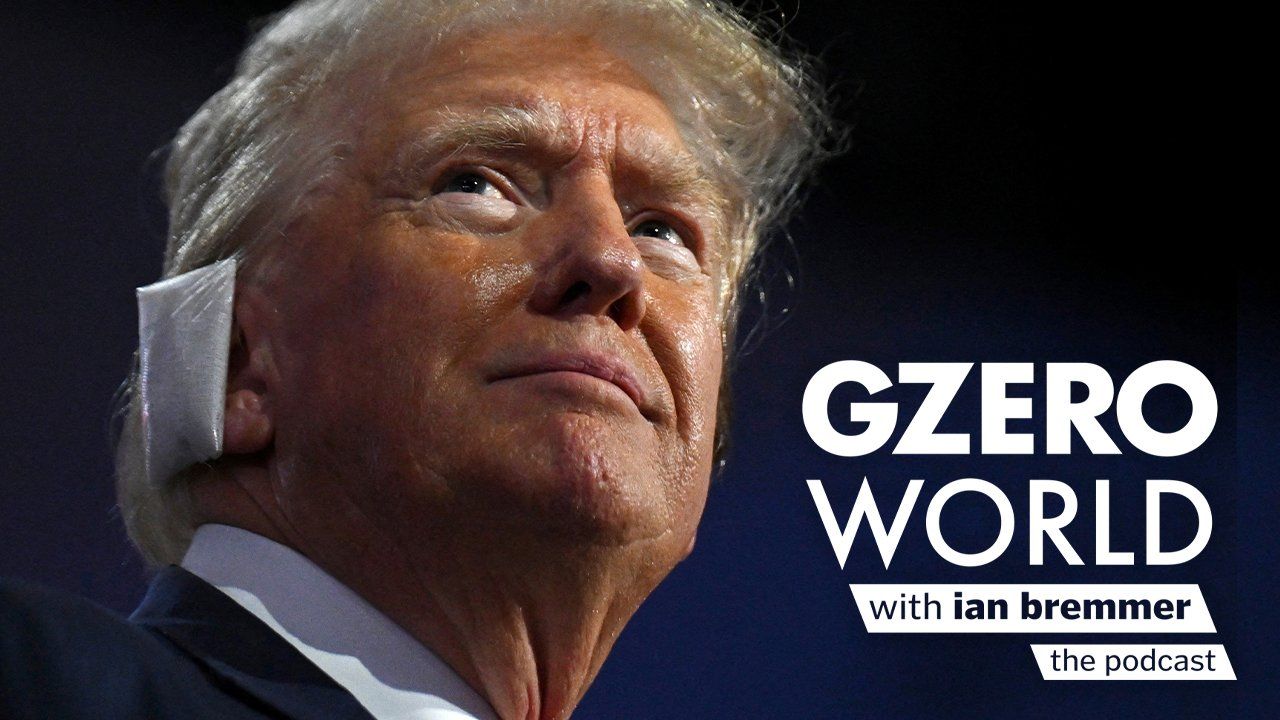Trump's close call and the RNC: Brian Stelter and Nicole Hemmer weigh in on a historic week in US politics
Listen: We're watching history happen in real-time. Never before was that fact more apparent than this week, when former President Trump narrowly survived an assassination attempt, picked his VP candidate, presided over a united GOP at the Republican Convention, and all while a Democratic Party in disarray continued to clamor for Biden to step aside.
It's amazing that the afterthought for the week is whether the sitting President will remain on the ticket for an election just months away. But that's where we are.
In the latest episode of the GZERO World Podcast, Ian Bremmer reflects on this pivotal week in US politics and welcomes back media journalist and former CNN show host Brian Stelter on the show alongside Vanderbilt political historian Nicole Hemmer. “We're living in a period of escalating political violence and social and political instability,” Hemmer tells Bremmer. “That was true in the late 1960s and early 1970s, and I think that it's true today."
In a wide-ranging conversation that touches on all the major news of the week, Hemmer and Stelter dig into the political divisions that led to this moment of horrific political violence. “The real divides are not between Democrats and Republicans, although those are real” Stelter adds. “But the biggest divide that we're seeing is between extremists and those who are moderates, the great silent majority."
Both guests also comment on the media's role in this fraught environment, with Hemmer critiquing prediction-focused coverage and Stelter advocating for better representation of casual news consumers and politically fatigued voters. The three also discuss the likelihood of Biden stepping down, an eventuality that Stelter argues is inevitable. “It is clear the Democratic Party elites are not with Biden. And I don't see that tide turning. I don't see how it changes.”
- The US is the world's most dysfunctional major democracy ›
- Is American democracy in danger? ›
- Ian Bremmer: American democracy at risk thanks to conspiracy theories ›
- Al Gore's take on American democracy, climate action, and "artificial insanity" ›
- What Donald Trump's second term will mean for the US economy - GZERO Media ›
